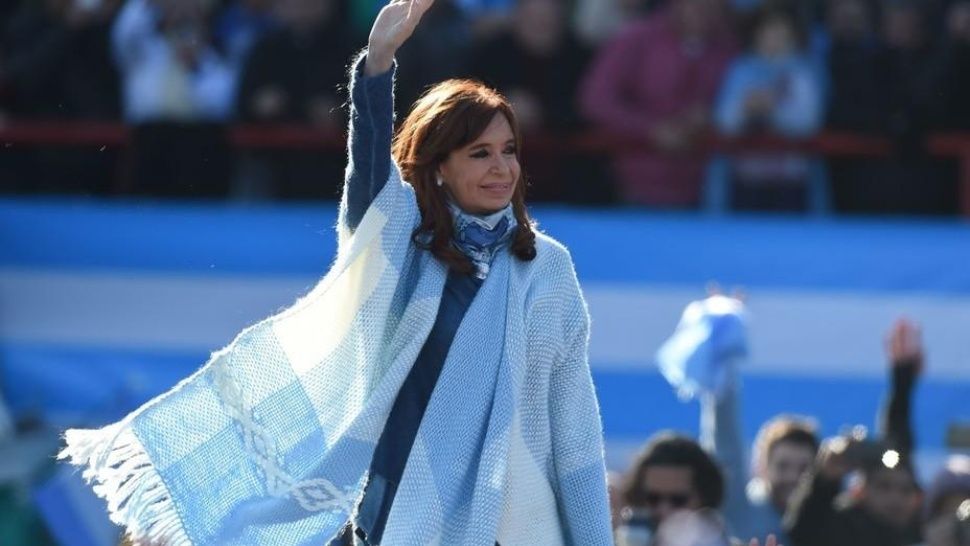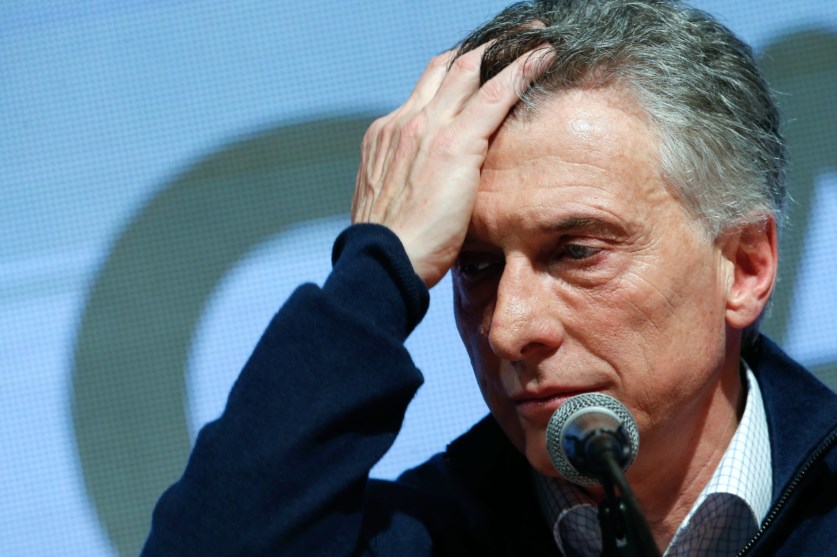RIO DE JANEIRO, BRAZIL – She is mobilizing the Argentines again – or still is. A book presentation by Cristina Fernández de Kirchner recently showed this in La Matanza, a suburb of Buenos Aires. The 66-year-old senator and left-wing populist president of the South American country between 2007 and 2015, lured tens of thousands out of their homes.
“Sinceramente” (“Honestly”) is the title of her bestseller, which was the main theme of the event. It is a 500-page reflection by Kirchner on Argentina’s recent past and how it has influenced the Argentineans and herself. In reality, however, it was an electoral campaign.

Critics on board
Almost four years after the end of her second term as head of state, Kirchner’s next political triumph is on the horizon: as Argentina’s upcoming vice president alongside top candidate Alberto Fernández. The presidential election takes place on October 27th.
In the primaries in early August, which are regarded as a test, the Peronist duo earned well over 47 percent of votes. Mauricio Macri lagged behind with 32 percent. According to recent polls, the difference is now even greater.
The audience welcomed the left-wing politician at the book presentation with the slogan “Vamos a volver” – we are coming back. The Peronist Party’s veterans, active politicians, young militants, and entrepreneurs were among the invited guests in the local university hall.
In a square outside the building, thousands watched the event live on large screens. La Matanza is not just any place. With a population of 2.2 million, it is the most important constituency in the province of Buenos Aires. Since the return of democracy in 1983, the municipality has been ruled uninterruptedly by the Peronist Party – and it is a bastion of Kirchnerism.
It was a home game for Kirchner. Casually, she talked about her book for about an hour. In the book, she rejects any accusations of corruption, discusses the controversial cause of death of prosecutor Nisman and her relationship with the Pope.
But above all she attacks Macri. She says he represents chaos and is convinced that Argentina needs to be reorganized. She writes: “Today the country is in complete political, economic, social and cultural decline”. Kirchner failed to mention, needless to say, that Macri had already taken over a country in crisis from her in 2015.
Faced with this he promised to reduce poverty and bring inflation under control through market-economy reforms when he took office; however, the crisis accelerated, unemployment and poverty rose, and inflation doubled.
In August inflation was just over 54 percent. Even the rescue loan of US$ 57 billion received from the International Monetary Fund (IMF) could not prevent the Argentine peso from rapidly depreciating.
Smart move
According to political science professor Julio Burdman of the University of Buenos Aires, the economic and social situation has deteriorated in all areas under Macri. The clear victory of the opposition coalition ‘Frente de Todos’ of Fernández and Kirchner in the primary elections is largely due to this.
With the appointment of Fernández as a presidential candidate, Kirchner has, according to Burdman, reunited the divided Peronists: the centrist faction, for which Kirchner was once unacceptable, has now closed ranks in reconciliation with the left-wing, Kirchner-friendly faction. For Burdman, this is yet a further reason for success.
Kirchner thus succeeded in making a clever move. All of Argentina had expected that she would again run for the highest office. By letting Fernández take the lead, she surprised everyone.
“Did they really believe that after all we have experienced, my only goal would be to run for president again,” she asked in La Matanza, referring to those who accuse her of being obsessed with power. “How pathetic Cristina would be if she only wanted that.” The audience cheered.
Kirchner has been trying for months to present herself as reformed. During her presentation, she praised herself for consorting with politicians she once strongly criticized. She may not have called him by his name at the time, but Alberto Fernández is one of them.
The longstanding chief of staff for Néstor Kirchner, Cristina’s late husband and her predecessor as president, Fernández abandoned his office in 2008 only a few months after her election, due to differences of opinion. He then distanced himself from “Kirchnerism” and became a sharp critic: “Peronism was progressive under Kirchner (Néstor) and pathetic under Cristina,” he once told the media.

Acknowledgment of national debt
Meanwhile, poison is a thing of the past. “We are ready to build another story and another country,” she assured at the book presentation, pointing to the joint candidacy. She stressed the importance of dialogue for Alberto.
In fact, Fernández, a 66-year-old lawyer and former law lecturer at the University of Buenos Aires, is regarded as a center-left politician who belongs to the moderate wing of Peronism. Political scientist Burdman describes him as a Peronist technocrat.
To date, he has not presented a detailed electoral platform. However, there are clues as to how Fernández could tackle the crisis as president. He sees renegotiations with the IMF as crucial, as the country finds it difficult to fulfill its loan obligations under current conditions.
He says he wants to prevent national bankruptcy. Since the debt was contracted by a democratically elected government, he believes it is legitimate. Fernández wants to abolish export duties and boost exports. In order to curb inflation, he proposes a wage-price agreement between the state, trade unions and entrepreneurs.
In the past, he criticized capital controls. Recently, however, he said that the currency restrictions recently reintroduced by Macri to stabilize the peso would remain in place until the economy had normalized.
Populism as it once was under Kirchner is hardly to be expected, at least immediately. Fernández simply lacks the money to keep his electorate happy.
Moderate fig leaf?
Fernández is little known among the population.
Kirchner is the driving force behind the campaign. A third of the electorate is loyal to her. Almost as many, however, fear nothing more than her return to power and her protectionist economic policies. Also, the 13 investigations against her for corruption are not helpful to her popularity.
Malicious tongues claim that the real reason for Kirchner’s involvement with Fernández is related to this. Her chances of victory are greater at his side, and a place in government would grant her another four years of political immunity, which she already enjoys as a senator.
Some believe that Kirchner is using Fernández merely as a puppet to pull the strings in the background once the election is won.
A number of other experts, such as political scientist Julio Burdman, in turn, regard her as pragmatic. The new government will have to face the crisis, cooperate with the IMF and attract investment.

“To do this, the head of state must have a broad base and be politically centered,” he explains. Kirchner had become aware that she could not assume this role, but the moderate Fernández could. Aware of her controversial position, she allowed him to play the leading role, at least during the election campaign.
Whether or not she will allow him to do so in the event of an election victory will only be known with certainty when the new government takes office in December.

